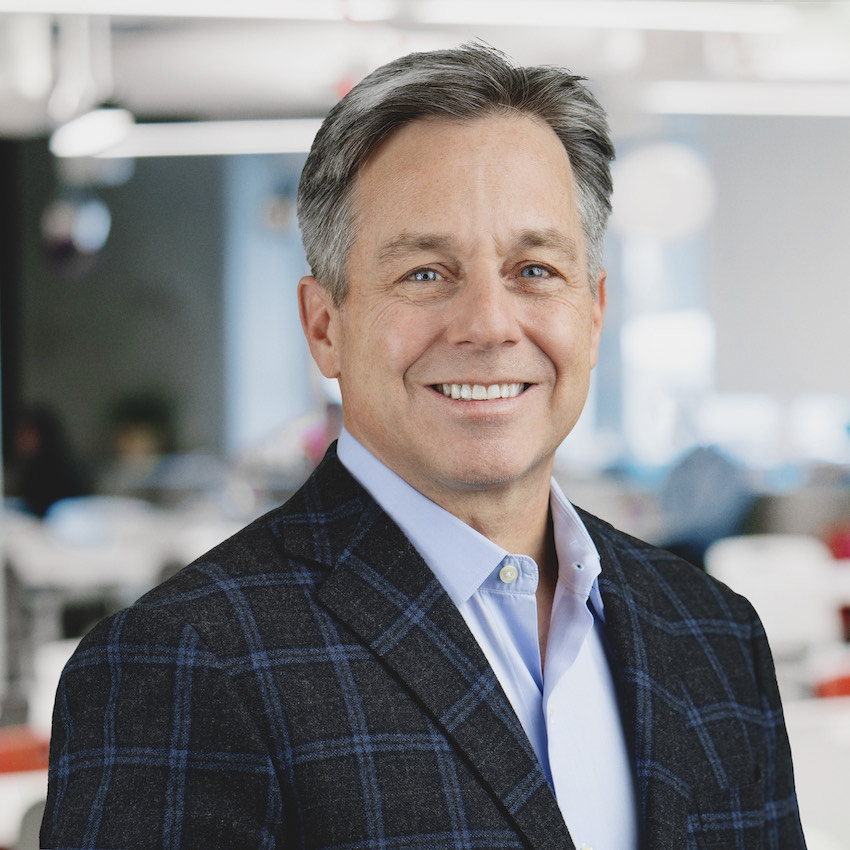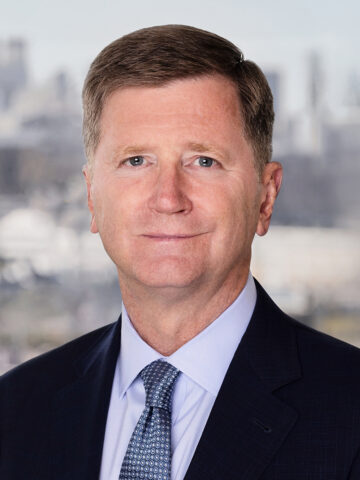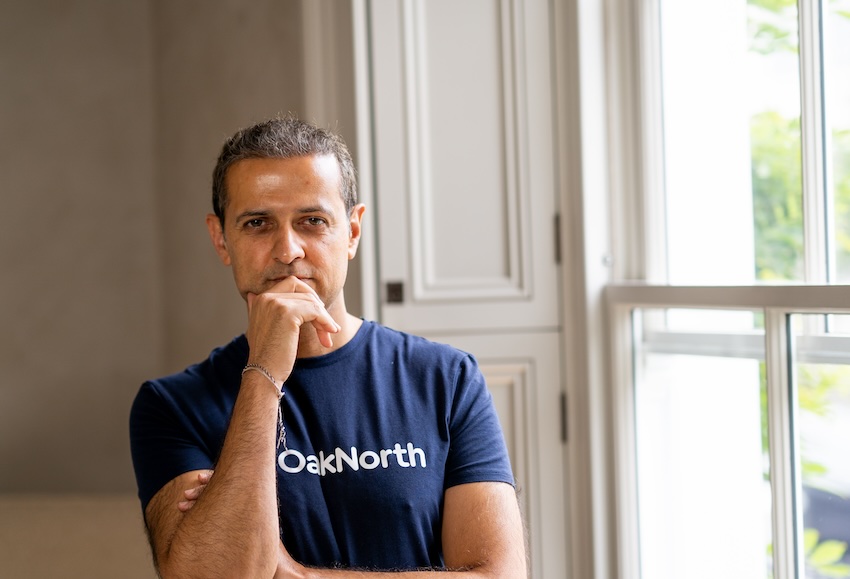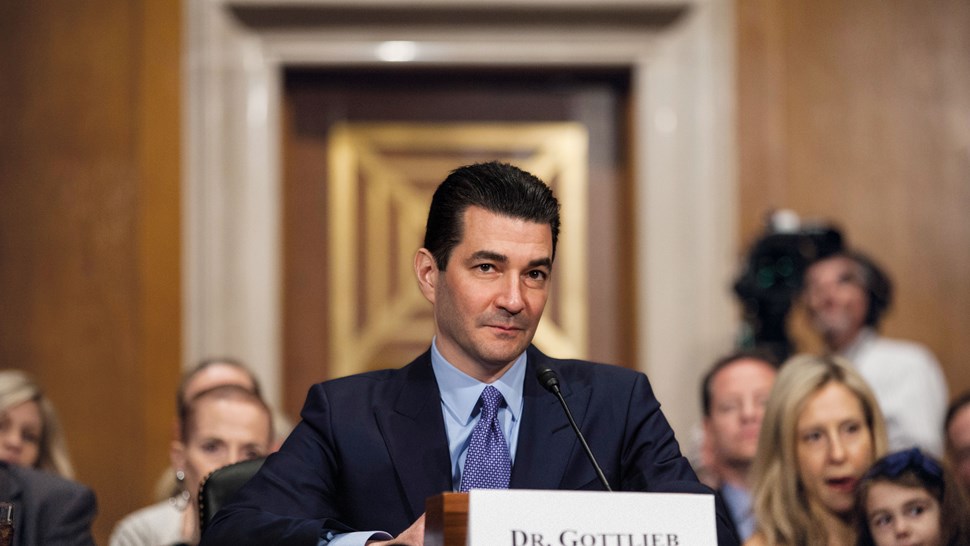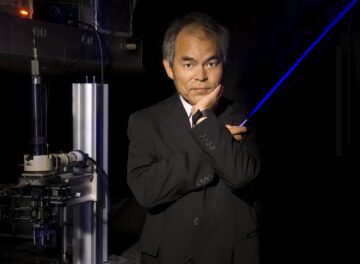A talk with Mike Buckley, CEO of an app for blind and low-vision people. By his friend and former colleague, Mark Palmer.
I first met Mike Buckley when he was a corporate advisor and I was the comms person for Enron—yes, that Enron—which was in the throes of scandal-induced collapse. Sensing that I was miserable—I’d been a true believer in Enron—he decided it would be better to talk in person and arrived in Houston on a Sunday. With his full approval, instead of launching into business, we spent that first afternoon watching football, talking about anything but work. The gesture meant a lot to me and he quickly became a confidant and friend, someone who understood the pressures I was under and the challenges I had to face, who could help me face those challenges without losing my humanity.
Today, Buckley is Chairman and CEO of the platform Be My Eyes, which marshals millions of volunteers in short sessions to help people with visual impairments navigate specific activities. Listeners of National Public Radio in America may have heard Buckley being interviewed about Be My Eyes. It’s “the largest digital volunteer organization in the world,” he says.
Briefly, Buckley and I overlapped at Brunswick, which I joined two jobs after Enron. Buckley was a Managing Partner in the firm’s San Francisco office. After Brunswick, he served as Facebook’s Vice President of Global Business Communications, then as the comms person in California for Mike Bloomberg’s 2020 presidential run.
As an investor and advisor, he is involved with many other developing businesses around the world, including a network of dental care outlets in India. He’s also a co-founder and Chairman of Ocean’s Halo, a seaweed-based foods company.
The father of two teenaged daughters, Buckley also plays in a band, the Love Handles (billed as “the mother of all Dad bands”). In our conversation, he had a lot to say about Be My Eyes, concerns about AI, and the lessons he learned “getting knocked on my ass.”
You’ve described Be My Eyes as “a lovely merger of technology and human kindness.” Is that something that you look for in your investments?
I do now. I fell a little bit into it, to be honest. But the way I think about it now is, we all have limited time on the planet. How do you want to spend your time? Where do you want to spend your money? Ideally, it’s in areas that make a difference in people’s lives or for humanity, even if it’s just on a smaller level.
I think that requires some humility. When you’re 30, you think you’re better, smarter, faster, or whatever egocentric thing you’re thinking on any given Wednesday. You need to not only mature, but I also think you need to get knocked on your ass once or twice.
“We all have limited time on the planet. How do you want to spend your time? Where do you want to spend your money? Ideally, it’s in areas that make a difference in people’s lives or for humanity, even if it’s just on a smaller level.”
What was one of the times you got knocked down?
My favorite story is when, as an advisor, I was airlifted into Mesa, Arizona for a large manufacturer that had a plant explosion the year prior. There was litigation, the community and politicians were up in arms.
I came up with the “brilliant” idea of bringing in all of the media, and the politicians and community leaders to do a tour of the advanced safety systems at the plant—which were awesome, by the way, crazy, early robotic automation, things like this. It was fantastic. We put the anchor from the biggest news station on the middle of the factory floor in a hazmat suit and we asked her to try to light a Bic lighter. And, of course, the second it sparked, the automatic deluge of water came down.
It’s like five minutes to 5:00 in the afternoon, and I hear the news anchors practicing their standups, because we’re going to lead the 5:00 news. And I’m like, “This is gonna be a home run. This is gonna be awesome.”
Swear to God, three minutes to 5:00, big boom, sirens—another explosion, about a quarter mile away from where the media was standing, all of them still there. Fire engines across the corporate campus, live shots of smoke. My home run becomes a disaster.
The second lesson: I was sitting in the gutter of this corporate campus, thinking that my career was over—a shocking failure. I literally had my head in my hands. The number two or three executive at the company came up and sat down, put his arm around me, and he said, “Mike, it’s not your fault.” And I said, “What are you talking about? This was my idea…” He said, “Mike, you know what the best PR for us is gonna be? We need to stop blowing s**t up.” So, the lesson there is: Fix the operational problem. Go to root causes. Sure, craft the media message, but attack and fix the underlying issue. Fix your s**t.
Two big things that I learned from that. One is that you better know your data. What I didn’t realize before giving my recommendation was that 85% of plant accidents happen toward the end of a shift, when people are tired. So why would I have people in there the last hour of the shift?
Those two lessons have stayed with me forever.
Is there something specific that attracts you to a particular company?
It’s always people based. There’s always going to be interesting technology, but technology is usually non-unique. The technological moats that exist today are not going to be moats in the future. So the deciding factor is always the humans in the room. The winning pitch almost always involves that passion and intensity on behalf of the founder—and ideally, a little chip on their shoulder. Are they angry at something that happened in their lives? Not only a desire, but almost a need to go do something, to prove themselves. Those are the people I love working with.
Startups are brutal. You’re going to get beaten up. One day you’re up really high, and then literally 24 hours later, you feel like you’re going out of business. To get through that roller coaster is really about the humans and the desire, passion and intensity that they’re bringing to the business.
You’re in the process of introducing AI functionality to the Be My Eyes app. Is the goal to move entirely to AI? Or are volunteers always going to remain part of the equation?
The goal is to provide the community with the choice they want to serve their needs. We believe that many in the community will prefer some type of human interaction. I had an amazing experience where I spent about 10 minutes with a woman reading her holiday cards to her and describing them. I hope the volunteer and the human-to-human connection always remains.
Definitely, if you talk to the volunteers, they describe the experience as the best part of their week. The average call only lasts about three minutes. But every time after you hang up that phone, you feel great because you just did a small service for another human being and have made their life a little bit better. You have a glow after you hang up.
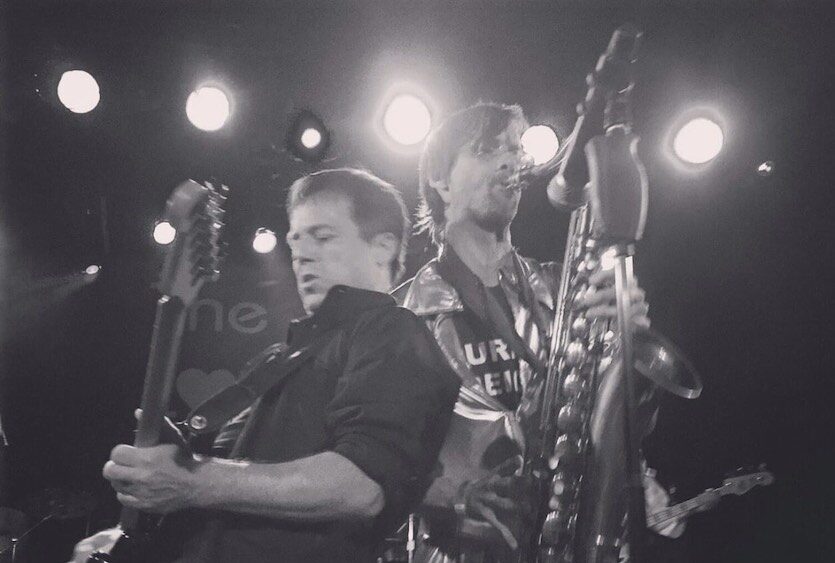
Mike Buckley also plays in a band, the Love Handles.
Is there potential to extend its use beyond those with visual impairments?
Potentially, yes. It’s something we think about a lot. Right now, we have contracts with dozens of corporate customers, including Microsoft, Google, P&G, Sony and Spotify. We’ve got a new partnership and a new customer in the AARP, where we can help who are having difficulty with common problems. But we have a lot of other long-term thoughts and plans related to this as well.
Let’s say 80% of the cases that currently involve our volunteers are solved through AI. What do you do with this army of kindness? About 6.7 million people have signed up to volunteer for our service, which we think is the largest digital volunteer organization in the world. How do we harness the power of that community and the desire of those people to help others? That’s a long-term prospect that really excites me.
Does all the fear about AI, the lack of trust in it, extend to the companies that use it?
I don’t think Be My Eyes or any other company I’m invested in is challenged by this currently. However, it’d be irresponsible and frankly stupid to argue that AI doesn’t pose challenges. There are very smart people, including major proponents of the technology, who believe there’s substantive risk associated with the tech. That requires serious discussion, commitment to alignment and broader safety measures—oh and by the way, regulation. I’ve said this on social media. This is the first technology ever where the thing that you invent can start to think on its own and extend beyond the parameters of the human training, or human control, potentially. It’s worth caution, discussion and being really thoughtful.
Do those headlines pose risks for the companies? Sure. But let’s go back to the lessons from Mesa, Arizona, for example. The bigger question is, “What’s the underlying problem? And what could it cause?” Forget about the risk from the headline for now. The risk from AI itself is real. Fix the core issue.
Is there anything else you want to bring up that we haven’t discussed?
With all the technological advances we’ve talked about, with the turmoil in the world, with the increasingly polarization politically and societally, with COVID, it’s hard to imagine a time when an emphasis on thoughtful communications has been more important. That’s Brunswick’s work. It’s something I think about lot. It’s an investment—not only financially, but a time investment—that all the companies I’m involved with take very, very seriously.
